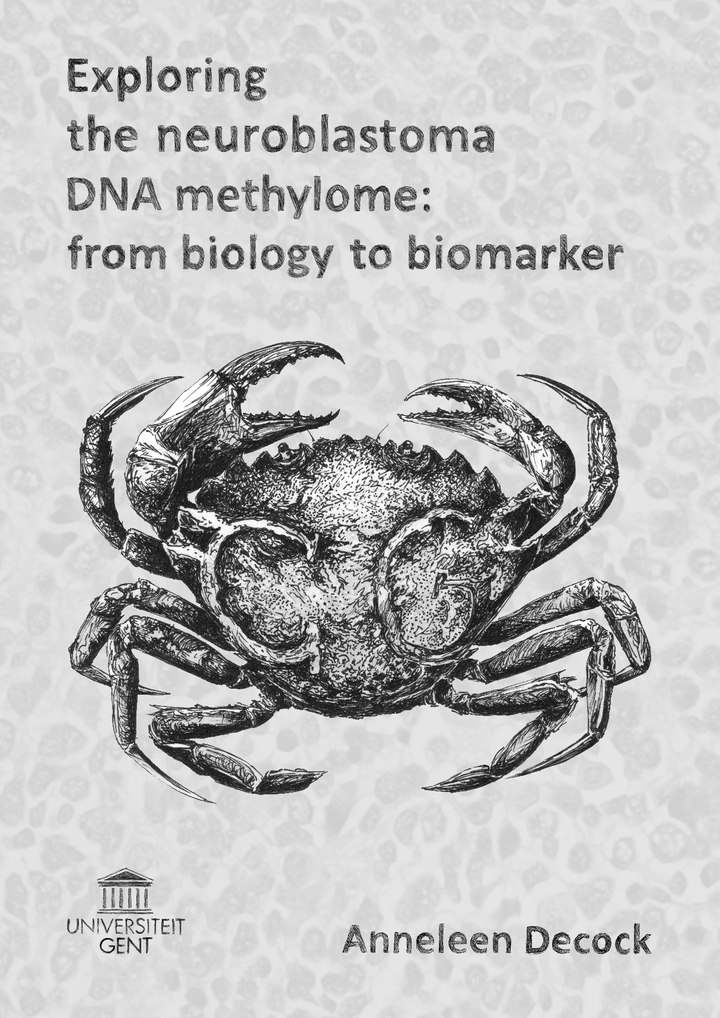Exploring the neuroblastoma DNA methylome: from biology to biomarker

Abstract
Neuroblastoma (NB), a childhood tumor arising from immature sympathetic nervous system cells, is a heterogeneous disease with prognosis ranging from excellent long-term survival to high-risk with fatal outcome. In order to determine the most appropriate treatment modality, patients are stratified into risk groups at the time of diagnosis, based on combinations of clinical and biological parameters, namely age of the patient, tumor stage, histology, grade of differentiation, MYCN oncogene amplification, chromosome 11q aberration and DNA ploidy. However, use of this risk classification system has shown that accurate assessment of NB prognosis remains difficult and that additional prognostic markers are warranted. Therefore, we aimed to identify prognostic tumor DNA methylation biomarkers for NB. To find new biomarkers, we profiled the primary tumor DNA methylome using methyl-CpG-binding domain (MBD) sequencing, i.e. massively parallel sequencing of methylation-enriched DNA fractions, captured using the high affinity of MBD to bind methylated cytosines. As proof of principle, we applied this technology to 8 NB cell lines, and in combination with mRNA expression studies, this led to a first selection of 43 candidate biomarkers. Next, methylation-specific PCR (MSP) assays were designed, to allow candidate-specific methylation analysis in a primary tumor cohort of 89 samples. As such, we identified new prognostic DNA methylation biomarkers, and delineated the technological aspects and data analysis pipeline to set up a more extended biomarker study. In this follow-up study, the DNA methylome of 102 primary tumors, selected for risk classification and survival, was characterized by MBD sequencing. Differential methylation analyses between the prognostic patient groups put forward 78 top-ranking biomarker candidates, which were subsequently tested on two independent cohorts of 132 and 177 samples, adopting the high-throughput MSP pipeline of our pilot study. Multiple individual MSP assays were prognostically validated and through the implementation of a newly developed statistical framework, a robust 58-marker methylation signature predicting overall and event-free survival was established. This study represents the largest DNA methylation (biomarker) study in NB so far. The MBD sequencing data were shared with the research community through the format of a data descriptor. As such, these data are fully available to others, ensuring its reusability for other research purposes. To illustrate how these data can be applied to gain new insights into the NB pathology, we characterized the DNA methylome of stage 4S NB, a special type of NB found in infants with widespread metastases at diagnosis that paradoxically is associated with an excellent outcome due to its remarkable capacity to undergo spontaneous regression. More specifically, we compared promoter methylation levels between stage 4S, stage 1/2 (localized disease with favorable prognosis) and stage 4 (metastatic disease with dismal prognosis) tumors, and showed that specific chromosomal locations are enriched in stage 4S differentially methylated promoters and that specific subtelomeric promoters are hypermethylated in stage 4S. Furthermore, genes involved in important oncogenic pathways, in neural crest development and differentiation, and in epigenetic processes are differentially methylated and expressed in stage 4S. In conclusion, by exploring the DNA methylome of NB, we have not only demonstrated that DNA methylation patterns are intimately related to NB biology, but also found additional clinically relevant prognostic biomarkers.